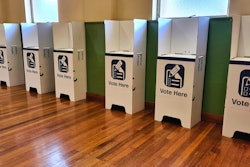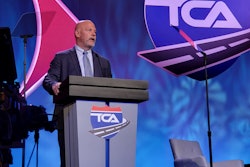“It was the best of times, it was the worst of times, it was the age of wisdom, it was the age of foolishness." – Charles Dickens
That was written way back in 1859. Can you imagine what Dickens might say about our times today? As an industry we are approaching a significant intersection of change and have some key decisions to make. Some of the proposals coming at us from various state and federal agencies can be confusing and frustrating.
Recognizing this changing landscape, the Truckload Carriers Association has reenergized its commitment to advocating on behalf of the industry in Washington DC. During this process, we are beginning to recognize that reactively fighting against everything that comes our way from Congress and from federal agencies is a hard and unforgiving strategy. We need to change our approach.
One of the ways that we can change is to be more proactive and less reactive. As an industry, we can not only define what is important to us but we can also lay out our own plan to make progress in areas that are important to us.
In remarks that I made on my first day as Chairman at the recent Truckload Carriers Association Annual Meeting, I laid out some areas that we can focus on: more effectively advocating on behalf of our drivers to make driving a better job; becoming safer as an industry and reducing large truck related fatalities; improving the financial sustainability of carriers within the industry; and focusing on reasonable and actionable environmental rules that have measurable impacts on tangible results such as clean air and water.
Rather than reacting to the endless and sometimes misguided ideas that flow from regulatory bodies, we can lay out our own plans to improve our industry; plans that would likely include Initiatives such as improved truck parking, more competitive driver wages, universal access to restrooms for drivers, hair testing to eliminate drug use on our roadways, the increased use of automated emergency braking technology, efforts to reduce distracted driving, the repeal of FET on equipment purchases, education around appropriate return on invested capital for carriers, and reasonable environmental efforts that support tangible results such as clean air and clean water with technologies that are proven and implemented across sustainable timetables.
There are so many families that depend on the trucking industry for employment, let alone this great nation that depends on us to deliver goods across the country safely, efficiently and timely. We have a huge responsibility to remind our lawmakers how essential the trucking industry really is. We also have a responsibility to get them on board with the things that we know will help us to get the job done – safely, efficiently and timely.









